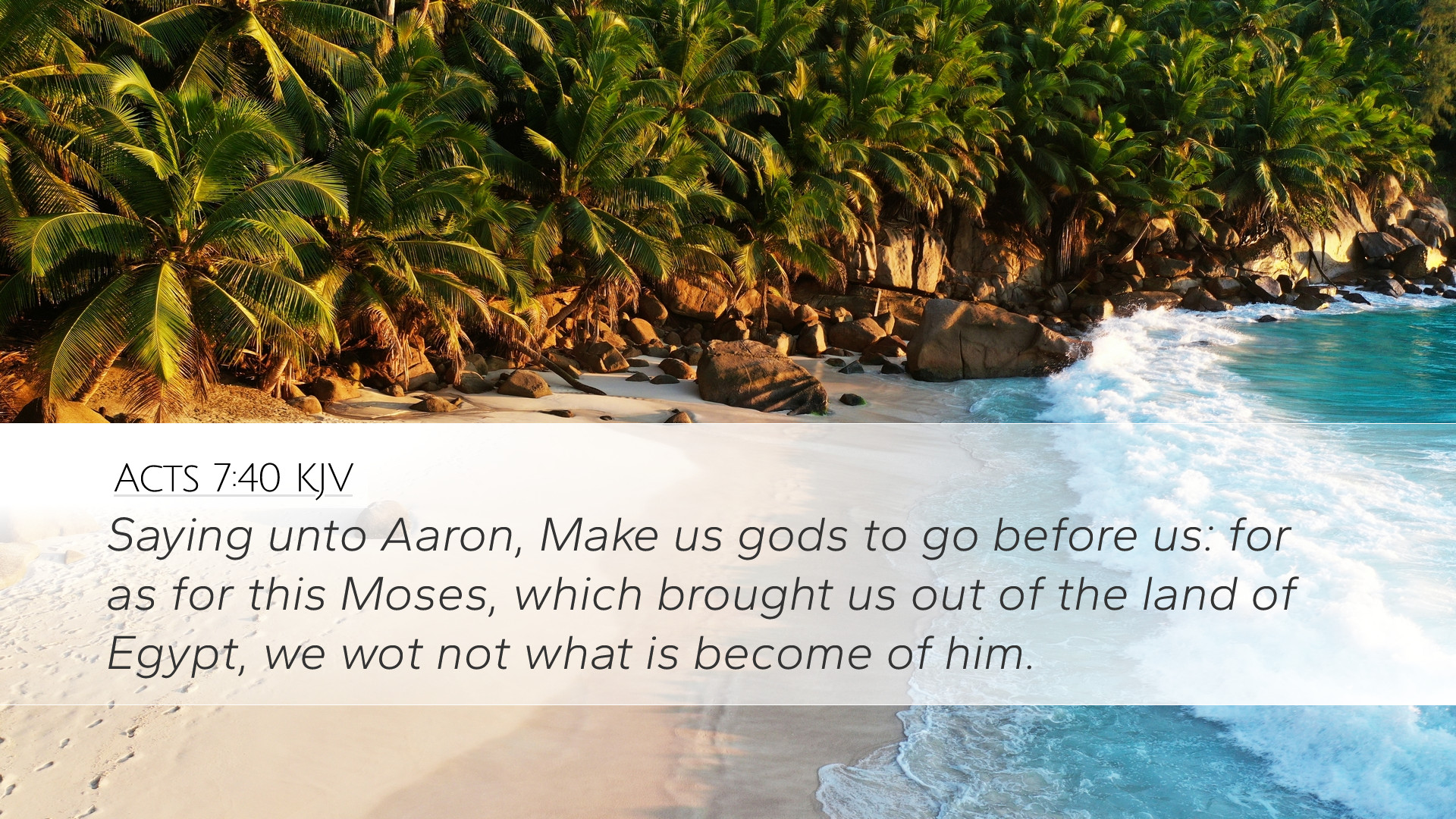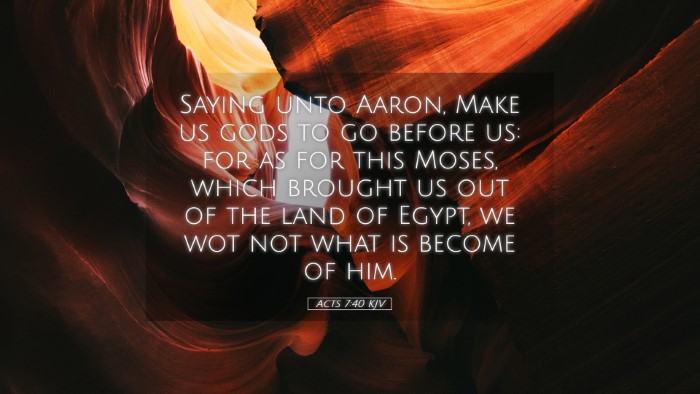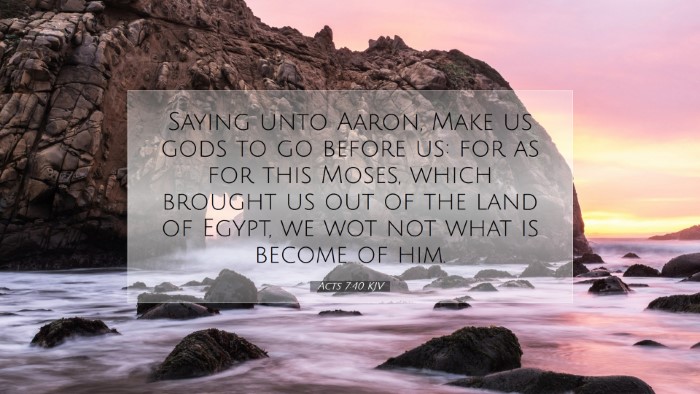Commentary on Acts 7:40
Acts 7:40 states, "Saying unto Aaron, Make us gods to go before us: for as for this Moses, which brought us out of the land of Egypt, we wot not what is become of him." This verse is situated within Stephen's address to the Sanhedrin, where he recounts the history of Israel and God's continual guidance and provision amidst their frequent rebellion.
Historical Context
This verse captures the moment after Moses has ascended Mount Sinai, where he communed with God, receiving the Law. The Israelites, in their impatience and uncertainty about Moses’ return, turn to Aaron, seeking a tangible representation of divinity. Their request for gods reflects a misunderstanding of their covenant relationship with Yahweh.
Theological Implications
The insights from public domain commentaries provide a multifaceted interpretation of this passage:
Matthew Henry's Commentary
Matthew Henry emphasizes the theme of rebellion and idolatry. He illustrates how Israel's request for gods signifies a lack of faith in God's providential care and presence. Henry notes that:
- This was a direct violation of the commandment God had imparted, highlighting human nature's propensity to revert to familiar pagan practices when divine leadership seems distant.
- The incident underscores the tension between divine authority and human desire for immediate and visible leadership.
Albert Barnes' Notes on the Bible
Albert Barnes comments on the historical complexity of this verse, stating that Aaron's yielding to the people's demands illustrates the danger of leadership swayed by popular opinion. Key insights include:
- The term "gods" mirrors ancient Near Eastern beliefs, and the worship of the calf represented a regression into idolatry that directly contradicted their deliverance from Egypt.
- Barnes highlights the existential crisis the Israelites faced, portraying their plea as an attempt to regain control and direction during a time of spiritual and physical uncertainty.
Adam Clarke's Commentary
Adam Clarke elaborates on the character of Aaron during this event. Clarke indicates that:
- Aaron's choice to comply reveals the vulnerabilities of even the most revered leaders when confronted with the pressures of the masses.
- The reference to "gods" indicates a profound spiritual decline, reflecting a heart turned away from the exclusive worship of Yahweh to embrace a pantheon akin to that of neighboring peoples.
Application for Pastoral Teaching
For pastors and church leaders, Acts 7:40 serves as a powerful reminder of the following:
- The danger of idolatry: Idolatry in modern contexts can be subtle, ranging from materialism to personal ambition. The passage invites a reflection on what contemporary idols the church may unknowingly worship.
- Lead by faith, not fear: Effective leadership must remain steadfast and rooted in divine guidance, resisting the temptation to acquiesce to popular demands that undermine biblical truth.
- The importance of patience in community: Believers are called to trust God's timing and remain engaged in faith practices, allowing the Holy Spirit to lead rather than succumbing to anxiety and doubt.
Conclusion
In summary, Acts 7:40 serves not only as a recounting of Israel's history but as a mirror reflecting the ongoing struggles of faith communities throughout time. The insights provided by commentators like Matthew Henry, Albert Barnes, and Adam Clarke enrich our understanding of spiritual idolatry, leadership, and the assurance of God's providence. The narrative compels every generation to evaluate its devotion and fidelity to the one true God amidst prevailing uncertainties.


